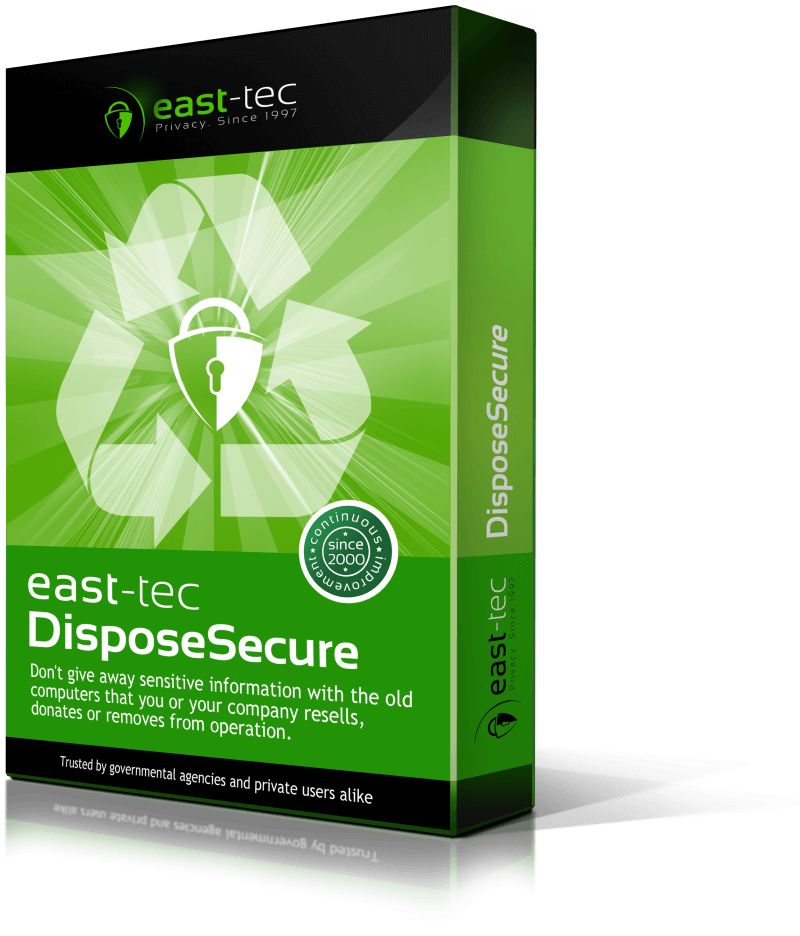Because formatting the disk or deleting data is not secure
When you delete a file, Windows does not destroy the file contents from disk - it only marks it as deleted, waiting for another file to overwrite it. Therefore, your valuable business and financial plans or your personal files and e-mail messages can easily fall into the wrong hands. Anyone can see the list of sites you have visited on the Internet, the social network profiles you have interacted with, or the applications you have run on your computer.
To make sure you comply with governmental regulations and data protection laws
There is legislation in place that mandates organizations, public agencies, banks, advocates, etc protect an individual's information. Personal information includes name, social security number, driver's license number, credit card number, financial information, patient information, consumer's personal financial data. Increasing data security regulations such as HIPAA, SOX, GLBA, European Union Directives require SECURE data removal. Penalties for non-compliance can have serious consequences, identity theft, exorbitant law suites, even criminal prosecution. You need to make sure you comply with this legislation and safely erase your hard disks before giving them away. Imagine you are a company who wants to re-sell or give away some computers. What happens if the new owner is able to see all your customer data? What happens if a hospital gives their old computers without securely deleting them first and the patient information falls into the wrong hands?
To avoid identity theft and to prevent information from being stolen
An easy way a thief can steal identities is by obtaining a victim's social security number. This allows access to important information such as financial accounts, credit reports. Let's say, your computer is broken and you send it back to the manufacturer or to the leasing company. Before doing this, make sure to completely erase your hard disk with a security program, otherwise if you simply format it with Windows, anyone with a minimum computer knowledge can easily recover all your data.
To protect your and your customer's identity
A data breach can be costly for any business, from losing money to losing the trust of your customers. You are a lawyer, and one of your employees stoles an old computer disk containing a list and documents with customers you have represented into court. If he sells the hard disk, this list can get public. That's why is extremely important to completely and securely erase all computers and devices even if you are not using them anymore.
To protect your work and confidential information (business plans, password files, etc.)
You are an aeronautical engineer and you currently develop terabytes of data of design specifications for a new prototype. The IT staff decides to upgrade your hard disk. After saving your data on your new hard disk, make sure you tell him to securely erase the entire old hard disk. We all heard of many cases about employees stealing highly sensitive and proprietary research, manufacturing information, and passing it to the competitors.
To prevent data from falling into the wrong hands when you sell/donate/reassign your PC
Did you know that like any computer device (hard disk, USB, CD/DVD), most copiers, printers or scanners contain hard drives that store a digital image of every document scanned or copied? And that is the organization's responsibility to wipe the information before any computer or device is sold or donated, otherwise there are laws which can make you responsible about data breaches? The most known is the New Jersey law which requires companies to securely erase any storage device before being returned to the leasing company, sold or disposed.
To get your computer back to factory settings
Do you want to sell your computer and make it like new again? Or maybe you want to upgrade your operating system to the newest Windows version? Or you have problems after a Windows update? For all these cases, it is recommended to entirely erase your hard disk.
To improve your PC's processor performance
Old data (traces of old viruses, malware, adware, thousands of Internet files created after visiting websites several months) can slow down your computer performance and may cause very often system freezes. It is recommended that you completely erase your system at least once in a year and then make a fresh Windows installation.

